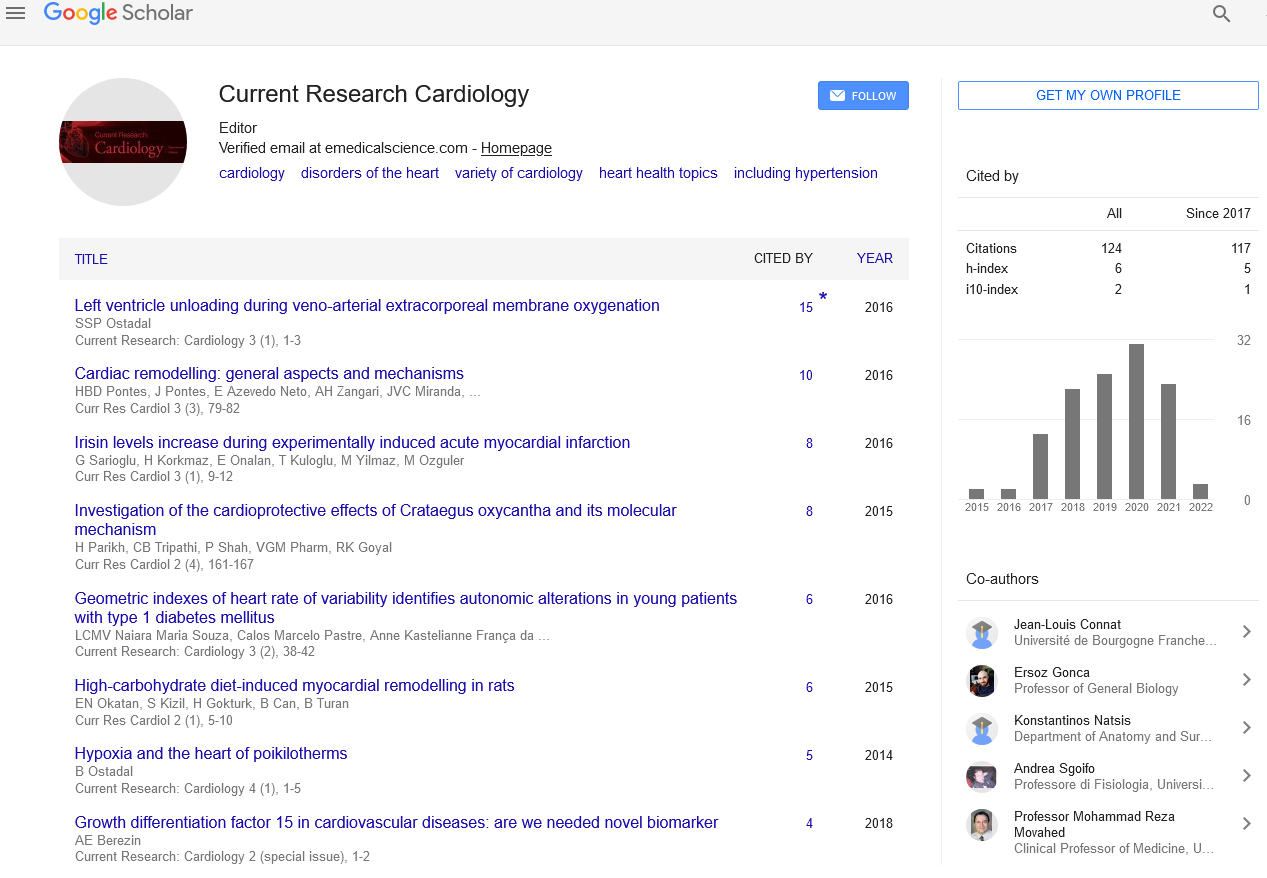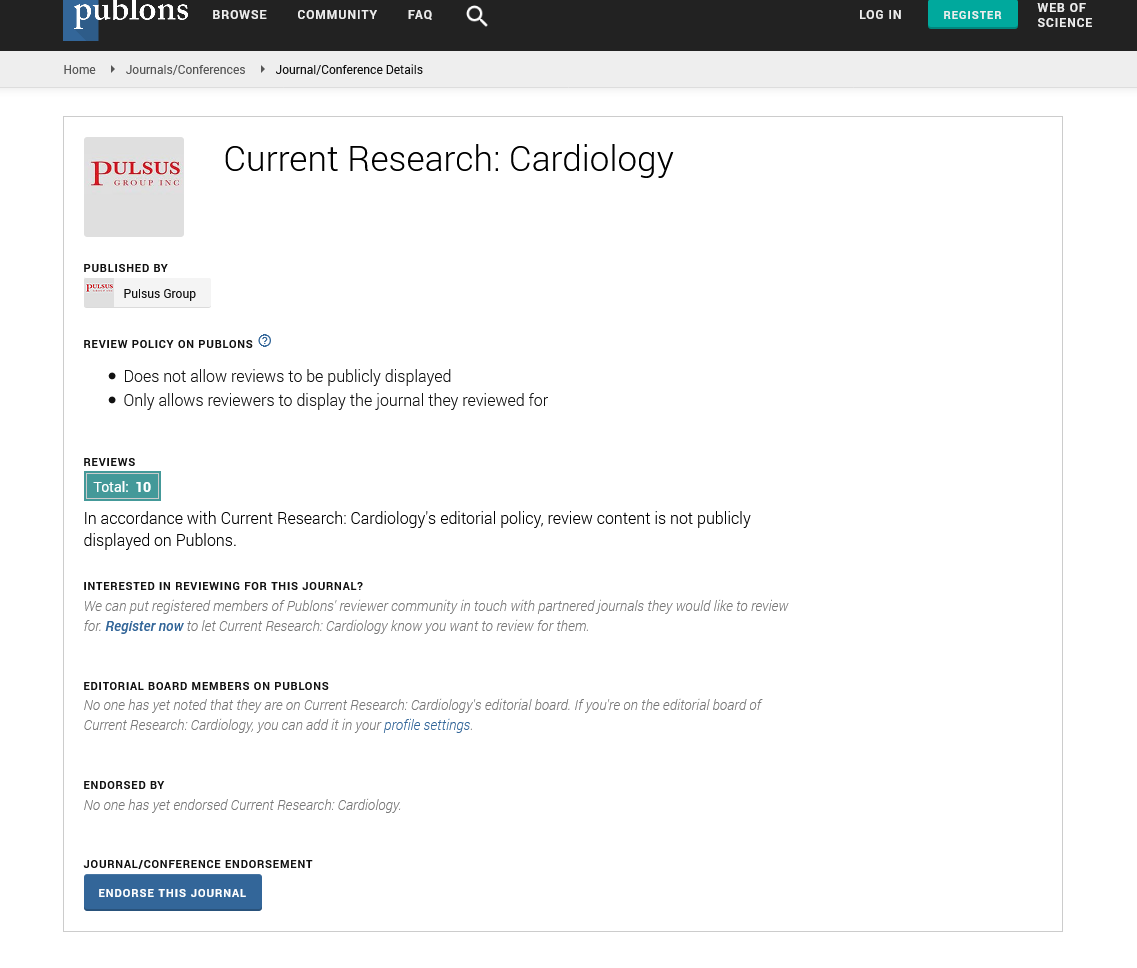
Sign up for email alert when new content gets added: Sign up
Abstract
The effects of glycine, glutamate and their combination on cardiodynamics, coronary flow and oxidative stress in isolated rat hearts
Author(s): Ivan Srejovic, Vladimir Jakovljevic*, Vladimir Zivkovic, Nevena Jeremic, Maja Jevdjevic, Isidora Stojic and Dragan DjuricObjectives: To examine the effects of glycine, glutamate and their combination on cardiac function, coronary flow and oxidative stress in isolated rat hearts, and to examine the effects of potential activation of N-methyl-Daspartate (NMDA) receptors in isolated rat hearts.
Methods: The hearts of male Wistar albino rats were excised and perfused according to the Langendorff technique, and cardiodynamic parameters (maximum rate of pressure development in the left ventricle [dp/dt max]; minimum rate of pressure development in the left ventricle [dp/dt min], systolic left ventricular pressure, diastolic left ventricular pressure, heart rate) and coronary flow were determined during the subsequent administration of glycine, glutamate and their combination. Oxidative stress biomarkers, including thiobarbituric acid-reactive substances, nitrites (NO2 −), superoxide anion radical (O2 −) and hydrogen peroxide (H2O2), were each determined spectrophotometrically in coronary venous effluent.
Results: Treatment with glycine and glutamate alone did not cause a statistically significant change in any of the observed parameters; however, their combined administration induced significant decreases in dp/dt max, dp/dt min, heart rate and coronary flow compared with the control conditions. Treatment with glycine and glutamate together induced significant increases in NO2 −, O2 − and H2O2 levels. After the washout period, all parameters that had changed (cardiodynamic parameters, coronary flow and levels oxidative stress biomarkers) returned to values that were not significantly different from controls.
Conclusions: The results of the present study indicate that NMDA receptors likely have important roles in the function of the heart and coronary circulation. In addition, these results are suggestive of a damaging effect of NMDA receptor overstimulation in heart functioning, potentially mediated by oxidative stress.
Full-Text | PDF





